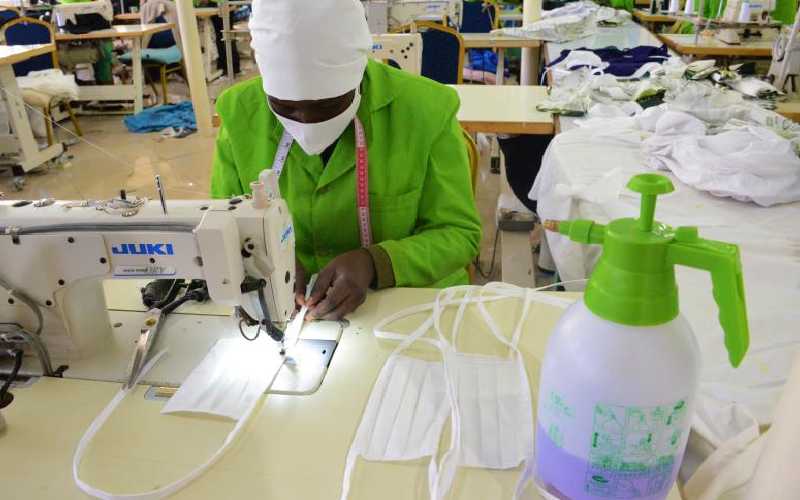×
The Standard e-Paper
Fearless, Trusted News

One of the 70 tailors hired by Rivatex East Africa making face masks to be used in the fight against coronavirus. [Stephen Rutto, Standard]
Eldoret-based Rivatex East Africa has rolled out mass production of face masks to boost the fight against coronavirus.